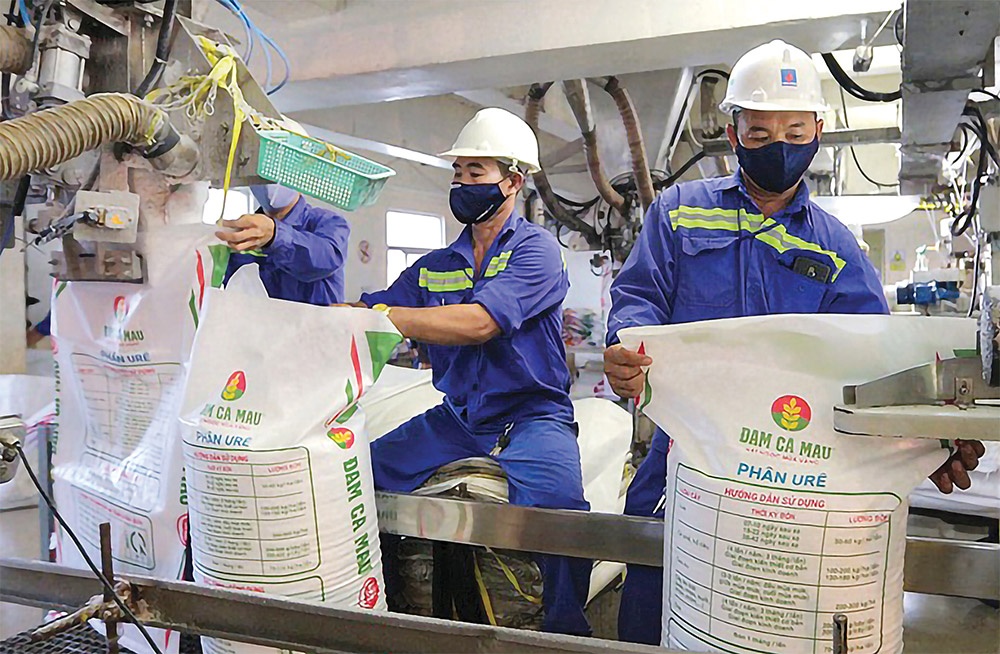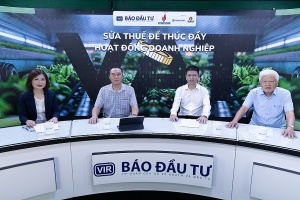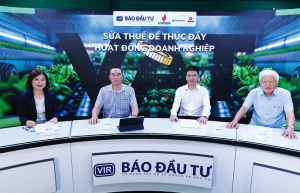Conclusion nears for VAT fertiliser issue
 |
| An increase in VAT for fertiliser could see prices being passed on to the end-customer, Photo: Le Toan |
Through many rounds of discussion to amend the Law on Value-Added Tax, the plan to change fertiliser from non-taxable to taxable at 5 per cent is still caught between two streams of opinion. The draft revised law on VAT was discussed by the National Assembly (NA) at its seventh session and is expected to be debated and approved at its eighth session in October and November.
The first viewpoint proposes to keep fertilisers, machinery, specialised equipment for agricultural production, and fishing vessels exempt from VAT as per current regulations.
The second viewpoint agrees with the drafting agency, moving the group of products into the category subject to 5 per cent VAT. Applying VAT will increase the cost of imported fertilisers (currently accounting for 26.7 per cent of market share), while reducing the cost of domestically produced fertilisers (accounting for the remainder) because all input VAT of production will not have to be accounted for in costs, but will be deducted from output tax.
At the NA session nearly two weeks ago, Trinh Xuan An, an NA deputy from the southern province of Dong Nai, said that Vietnam needs a modern fertiliser industry that is equal to the world and cannot depend on the import market.
“If the fertiliser industry is good, it will benefit people, the society, and the agricultural sector,” said An.
He agreed with the view of the NA’s Finance and Budget Committee that if a 5 per cent VAT rate is applied, domestic manufacturing enterprises will have room to reduce selling prices, meaning they do not have to do so immediately. Along with that is the opportunity to collect taxes from importing enterprises.
“If we keep to the story of imposing a tax to increase or decrease prices, we will never solve this problem. If we leave it like that, the story of the fertiliser industry will continue as it was 10 years ago, still dependent on the rest of the world,” An said.
Because domestic producers are unable to declare and deduct input VAT due to the lack of VAT on fertilisers, the cost of domestically produced fertilisers has increased by an estimated 5-8 per cent, leaving them vulnerable to competition from imported fertilisers.
Standing member of the NA’s Economic Committee Phan Duc Hieu said that because fertiliser is not subject to VAT, the input costs to produce this item cannot be deducted for tax.
“This is a disadvantage for businesses and increases production and business costs. Therefore, the decision to move fertiliser from zero to 5 per cent VAT as proposed by the government is reasonable,” Hieu said. “This adjustment aims to improve the efficiency of the agricultural sector so that everyone can benefit, and not simply to remove difficulties for businesses or increase or decrease prices.”
However, some are concerned that the imposition of a 5 per cent fertiliser tax rate will greatly impact farmers because prices will increase, leading to an increase in the cost of agricultural products and meaning those bearing the extra cost would be the consumer.
NA deputy Duong Khac Mai from the north-central province of Thanh Hoa said, “If fertilisers are subject to VAT at 5 per cent, it could solve the problem of VAT refunds for businesses but would certainly increase fertiliser prices. This would affect agricultural production and farmers’ lives.” Mai proposed to maintain the current regulation that fertilisers are not subject to VAT.
The NA’s Finance and Budget Committee recommends that the government carefully assess and report more fully on the impact of any policy amendment, from the perspective of the impact on domestic manufacturing industries as well as from that of the impact on farmers.
 | Appying VAT on fertiliser for sustainable development Applying VAT at 5 per cent on fertiliser will benefit various parties and contribute to the sustainable development of the industry. |
 | Businesses anticipate green light for fertiliser VAT switch Domestic fertiliser producers will have opportunities to capture market share if the proposal to apply a new VAT rate on fertiliser is approved. |
What the stars mean:
★ Poor ★ ★ Promising ★★★ Good ★★★★ Very good ★★★★★ Exceptional
Related Contents
Latest News
More News
- A golden time to shine within ASEAN (February 19, 2026 | 20:22)
- Vietnam’s pivotal year for advancing sustainability (February 19, 2026 | 08:44)
- Strengthening the core role of industry and trade (February 19, 2026 | 08:35)
- Future orientations for healthcare improvements (February 19, 2026 | 08:29)
- Infrastructure orientations suitable for a new chapter (February 19, 2026 | 08:15)
- Innovation breakthroughs that can elevate the nation (February 19, 2026 | 08:08)
- ABB Robotics hosts SOMA Value Provider Conference in Vietnam (February 19, 2026 | 08:00)
- Entire financial sector steps firmly into a new spring (February 17, 2026 | 13:40)
- Digital security fundamental for better and faster decision-making (February 13, 2026 | 10:50)
- Aircraft makers urge out-the-box thinking (February 13, 2026 | 10:39)

 Tag:
Tag:

















 Mobile Version
Mobile Version